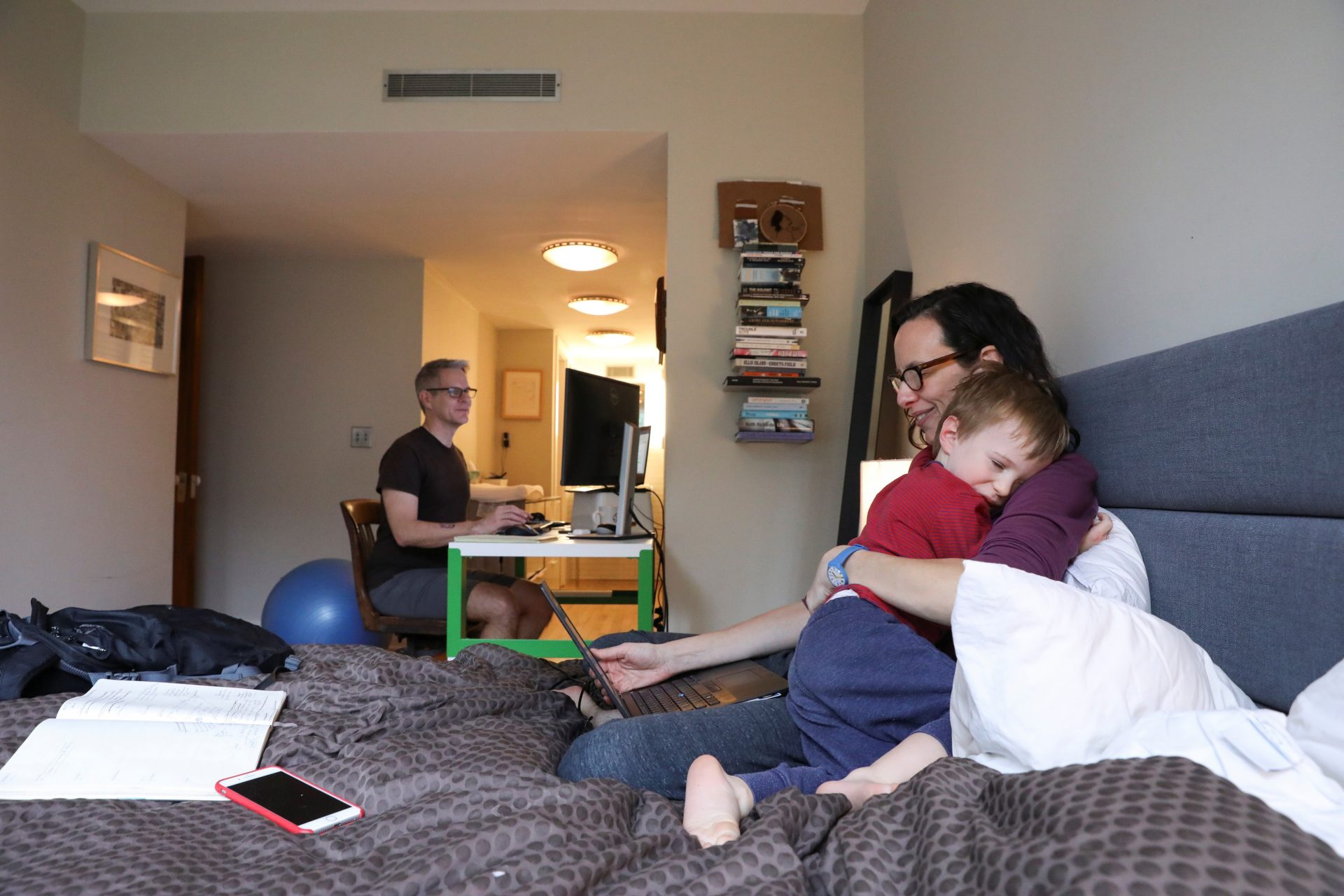In the pre-coronavirus era, on average, an American worker commuted at least 54 minutes a day, according to the U.S. Census Bureau.
The coronavirus lockdown changed the rules of the game and sent millions of people to work from home and spend less time behind the wheel and more time on rediscovering the family. We have come to know our families in a different way from what we used to and it has transformed us from within.
As we reopen the economy, each of us will bring the family baggage absorbed from working at home to the workplace, and will continue to feel connected to those closest to them. Back at their jobs, beyond their need to make a living, people will feel they are missing the internal connection between them.
“For the first time in history, humanity is realizing what we thought we knew but never fully grasped: The world is global and interdependent; it is our common home.”
Others will have to sort things out differently. 30 million Americans have lost their jobs since mid-March due to the COVID-19 crisis. A solution to this complicated situation will demand a national plan to appraise what industries and occupations are essential for the common wellbeing. Now we need to restore production and distribution in a way that provides humanity with the necessary products and services, but without excessive consumption, which had almost completely destroyed the world.
Such a plan will require setting special value to development programs that place human connection at the top. Why is this change of priorities mandatory? The answer is simple: We have never been so defeated by putting perfection, knowledge, strength, power, and influence on a pedestal. In our arrogance, we considered ourselves the supreme force of nature. Today, we have witnessed how quickly and easily the apparently safe world we had built can crumble.
Therefore, the goal of our time is to introduce a question mark in people concerning their lives, the world, and in general, where humanity is heading.
What Now?
Humanity’s problem now lies in realizing that the only correct exit from the crisis is to transform human relationships from egoistic to altruistic. Returning to business relations without correcting human relations will lead to a bigger crisis because we have not yet fixed the root of our troubles.
We need a global plan for human society to recover from egoism. For the first time in history, humanity is realizing what we thought we knew but never fully grasped: The world is global and interdependent; it is our common home.
We will start evaluating our lives as “before” and “after” the pandemic. This critical period we face seals the history of the egoistic development of humankind and shows that any system that is based on our egoism will produce negative results. Thus, what we need to correct is not the system itself, but our egoistic nature.
As a direct impact of the crisis, the world is moving toward feeling more connected and unified. A common problem that affects everyone brings people closer. They stop thinking about wars, conflicts between countries, exploitations by corporations, or hating other people; the main goal is to survive the common enemy. We should not wait for another wave of COVID-19 to make us react this way and to learn only through suffering. The feeling of brotherhood and unity must prevail if we truly want to thrive and achieve a more fulfilling life.











